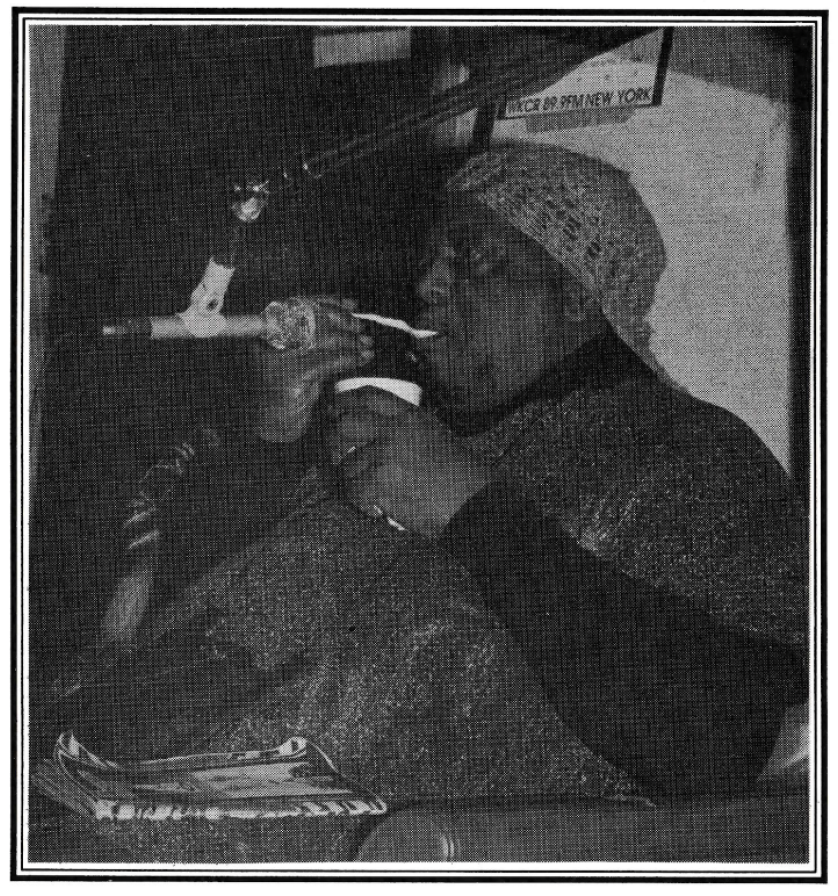
Sunday, November 15, 2015 - 2:00pm to 7:00pm
Sid Gribetz presents a five-hour radio broadcast celebrating the career of tenor saxophonist Arnett Cobb this Sunday, November 15, from2-7 PM on WKCR’s “Jazz Profiles”.
Arnett Cobb was a full-bodied, hard swinging musician with a warm, soulful sound that exemplified the tough, Texas, tenor tradition. Cobb also overcame deep personal setbacks, experiences that lent an emotional insight and intensity to his artistic expression.
He was born in Houston, Texas on August 10, 1918 and began playing all sorts of music as a child. Cobb was proficient enough to play professionally in touring bands during summer vacations in high school, in the heart of the Great Depression. Upon graduating high school, Cobb began his career in earnest, notably with the Milt Larkin orchestra, a Texas-based band that was a breeding ground for many great swing and blues musicians. Cobb’s fame grew, but he turned down many job offers from nationally famous bands for many years, preferring to stay with Larkin.
By 1942, however, Cobb joined Lionel Hampton’s organization, taking over Illinois Jacquet’s tenor sax chair. Cobb made his own dynamic impact with Hamp, and bravely recorded his own hit record version dubbed “Flying Home No. 2". With the infectious excitement that he conveyed, Cobb became known at times as “The Wild Man Of The Tenor Sax” .
After the war, Cobb left Hampton and embarked on his solo career, leading a small combo booked as a national attraction, and recording notable records in the jazz and early R&B vein for Apollo, Columbia, and Atlantic Records. He recorded his signature composition “Smooth Sailing” (made even more famous by Ella Fitzgerald’s cover record) and also backed singers such as Eddie Cleanhead Vinson and Ruth Brown. During this period, though, Cobb encountered his first setback, as a childhood spinal injury flared up, necessitating multiple operations and leaving him bedridden for over 15 months.
Beginning a new comeback, Cobb was also waylaid when, in 1956, he was severely injured in an automobile accident, that crushed both of his legs. Confined thereafter to braces and crutches that restricted his mobility for the rest of his life, Cobb returned to his native Houston where he ran a nightclub, consulted and did musical arrangements for many young acts, and still played his tenor sax. In 1959 and 1960 he made a series of solid mainstream jazz records for Prestige, but thereafter mostly stayed local.
With the traditional jazz revival that began in the early 1970's, Cobb started touring again, managing to make frequent trips to New York and the European continent to perform and record with many old compatriots, a regimen that continued until his death at the age of 70 in 1989.
